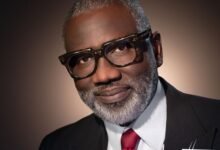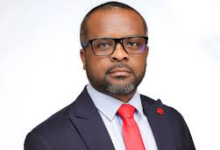Insulating the state-owned media from governmental controls without financial independence
The Czech-born British playwright and screenwriter, Sir Tom Stoppard once said “I still believe that if you aim to change the world, journalism is a more immediate weapon.” One cannot agree with him more. Every individual, institution, or nation needs a reflection at any point, which, in many cases, results in a form of change.
Change brings about the difference between the past, present and the future. It positively or negatively alters or modifies systems and institutions. Change ensures replacement with something else, especially something of the same kind that is newer or better; substitute one thing for another.
The Media, as we know so well has a unique identity in society as a formidable institution to bring awareness to people to initiate the needed change in society, normally positive change. This is done by the provision of information, education, knowledge, motivation, surveillance and entertainment.
Such has been the focus of all governments in ensuring the smooth operations of the media. For instance, the first President of our nation, Ghana Osagyefo Dr Kwame Nkrumah, established media houses to play such roles. The Ghana News Agency (GNA) for instance was founded on the eve of Ghana’s independence in 1957. It was part of a comprehensive communication policy that sought to harness the information arm of the state to build a viable, united and cohesive nation.
Others such as the then Daily Graphic, now the Graphic Communications Group Limited, The Ghanaian Times, formerly Guinea Press Limited. and the Ghana Broadcasting Corporation (GBC) have since been the bedrock of media operations in Ghana.
Today, the GBC is 89 years while the Graphic Communications Group Limited (formerly The Daily Graphic) is 74 years. They have been operating in the unique role of mobilising the citizens for nation-building, economic and social development as well as national unity and integration.
The constitution of the Republic of Ghana guarantees the media’s independence for efficient and effective societal information flow. The 1992 constitution established the National Media Commission to be responsible for promoting and ensuring the independence of these and other media houses in the country. Per the Constitution, freedom and independence of the media are paramount in a resounding democracy.
Article 162 of the constitution spelts out expressly that (1) Freedom and independence of the media are hereby guaranteed. (2) Subject to this Constitution and any other law not inconsistent with this Constitution, there shall be no censorship in Ghana. (3) There shall be no impediments to the establishment of private press or media; in particular, there shall be no law requiring any person to obtain a licence as a prerequisite to the establishment or operation of a newspaper, journal or other media for mass communication or information.
The fourth session appears amazing stating that “editors and publishers of newspapers and other institutions of the mass media shall not be subject to control or interference by the Government, nor shall they be penalised or harassed for their editorial opinions and views, or the content of their publications.” And (5) says All agencies of the mass media shall, at all times, be free to uphold the principles, provisions and objectives of this Constitution, and shall uphold the responsibility and accountability of the Government to the people of Ghana.
From the above intimidation, interference and obstruction of any form must not be a hindrance to the work of the media. That is why the sixth session of Article 162 provides an avenue for redress of any form of media impasse. “Any medium for the dissemination of information to the public which publishes a statement about or against any person shall be obliged to publish a rejoinder, if any, from the person in respect of whom the publication was made.
The media is not of different from society. Media therefore is an important aspect part of society. It therefore needs to be insulated from all forms of oppression. Media insulation will mean systems and institutions that have to prevent or reduce the flow of government and other powerful interference in the media space.
Insulation is synonymous with electric power. It is used to tightly bind electrons which makes it difficult for them to move out of its lane of flow.
Similarly, media insulation especially from government control refers to the mechanisms and practices that prevent government, which wields huge financial and political powers without boundary, from interferences and intimidation to operate freely, ensuring independence in reporting and editorial decisions.
A free and independent media such as ours is essential for democratic societies, as it promotes transparency, holds governments accountable, and informs the public without bias or censorship.
It must be noted that media insulation from governmental control may be easier achieved within the private media space than within the state-owned media atmosphere for the paramount obvious stance.
In the administration of the state-owned media houses in Ghana, the government of Ghana provides funding for at least salaries and other remunerations apart from one of them. They rely heavily on government for larger portion of budgetary requirements.
This means that the constitution only provides editorial and perhaps operations freedom and not financial freedom. This may not be surprising enough to many because the nation itself only has political independence and not economic and other independence which has brought us where we find ourselves as a nation.
The state-owned media’s existence without financial independence appears very worrying to all stakeholders. Even though the direct editorial interference may be out, creeping compromises on the part of managers of the state-owned media must jealously be guided.
This set the tone for the two-day orientation for the new Board of Directors of State-Owned Media House, organised by the National Media Commission in Koforidua last week.
For the Chairman of the Commission, it is incumbent on all state-owned media houses to be highly circumspect in ensuring absolute insulation from governmental controls.
His admonition comes at a time when the focus of the state-owned media is chiefly on offering public service. He said the urgent need for a clear dichotomy between delivering public service and funding state-owned media must be established.
Currently, the state-owned media houses are under threat. There appears a deep act of struggle to survive. The New Times Corporation, for instance, outsource its printing just and only just to continue operating in the name of mandate. Each of state-owned media houses have their own challenges that could be best described as severe but have no other option than to continue to operate under stressful and difficult conditions because they are mandated.
The Ghanaian state-owned media ownership and its independence must be looked at again for proper sustainable and efficient resourcing to ensure effective and efficient delivery while ensuring proper editorial independence that ensures that journalists and editors can make cogent content decisions without interference from the government or other powerful stakeholders.
Governments must acknowledge, understand and appreciate that the media houses that exist in the name of the state are situated in the country and they are the property of the nation which is superintended by the government and must therefore work and work well to succeed.
In places where media is not insulated from government control, it can lead to censorship, propaganda, and a lack of critical reporting on government actions. This must be avoided at all costs. For other media houses that are not state owned the primary objective is for commercial and political profit. How effectively can the state-owned media carefully blend business and public service to situate themselves financially and properly from governmental controls?
Let us find a way for the state media to be financially independent just as it is editorially independent ( if I am right). This change must happen to enhance the outlook of our state-owned media.
BY NANA SIFA TWUM (PHD)





